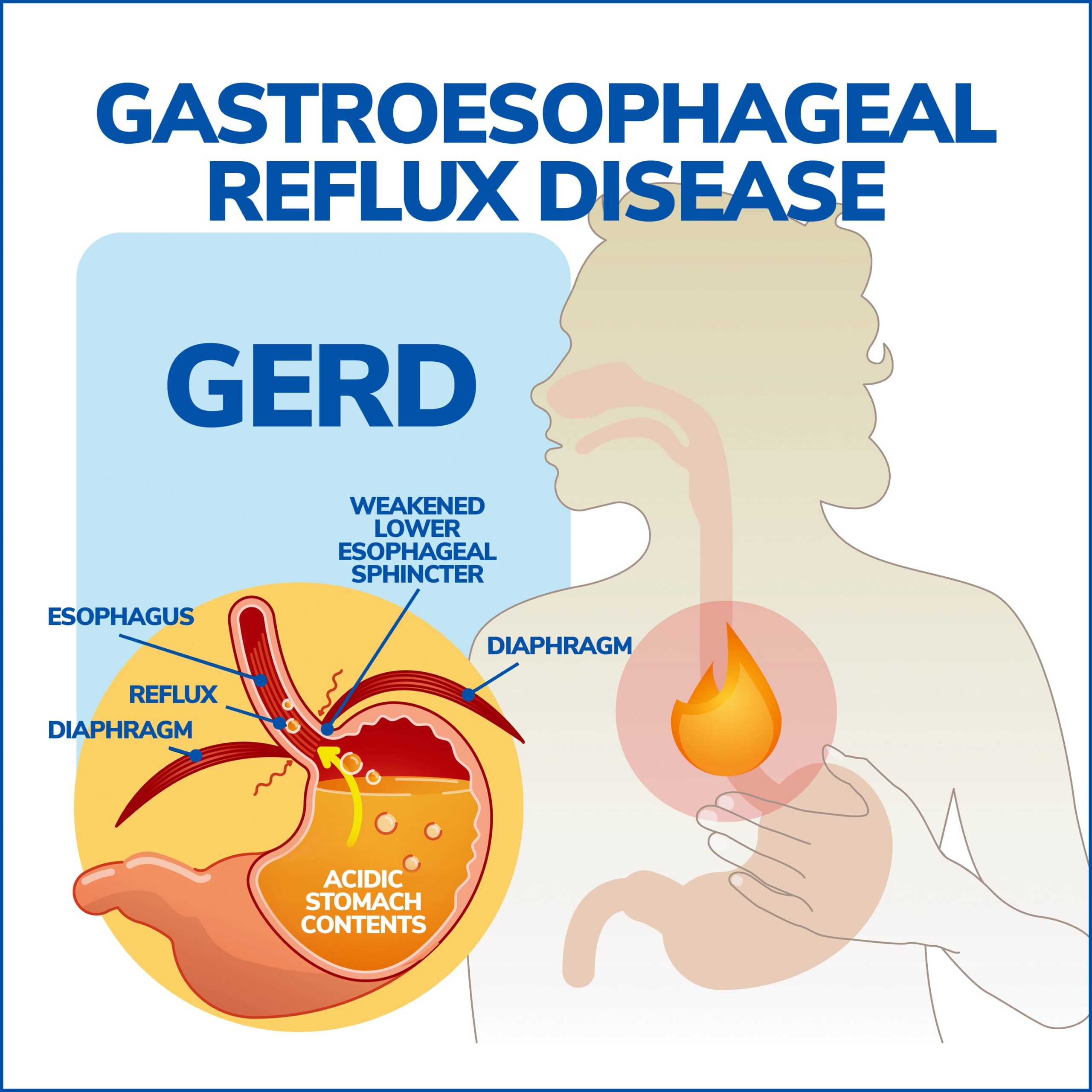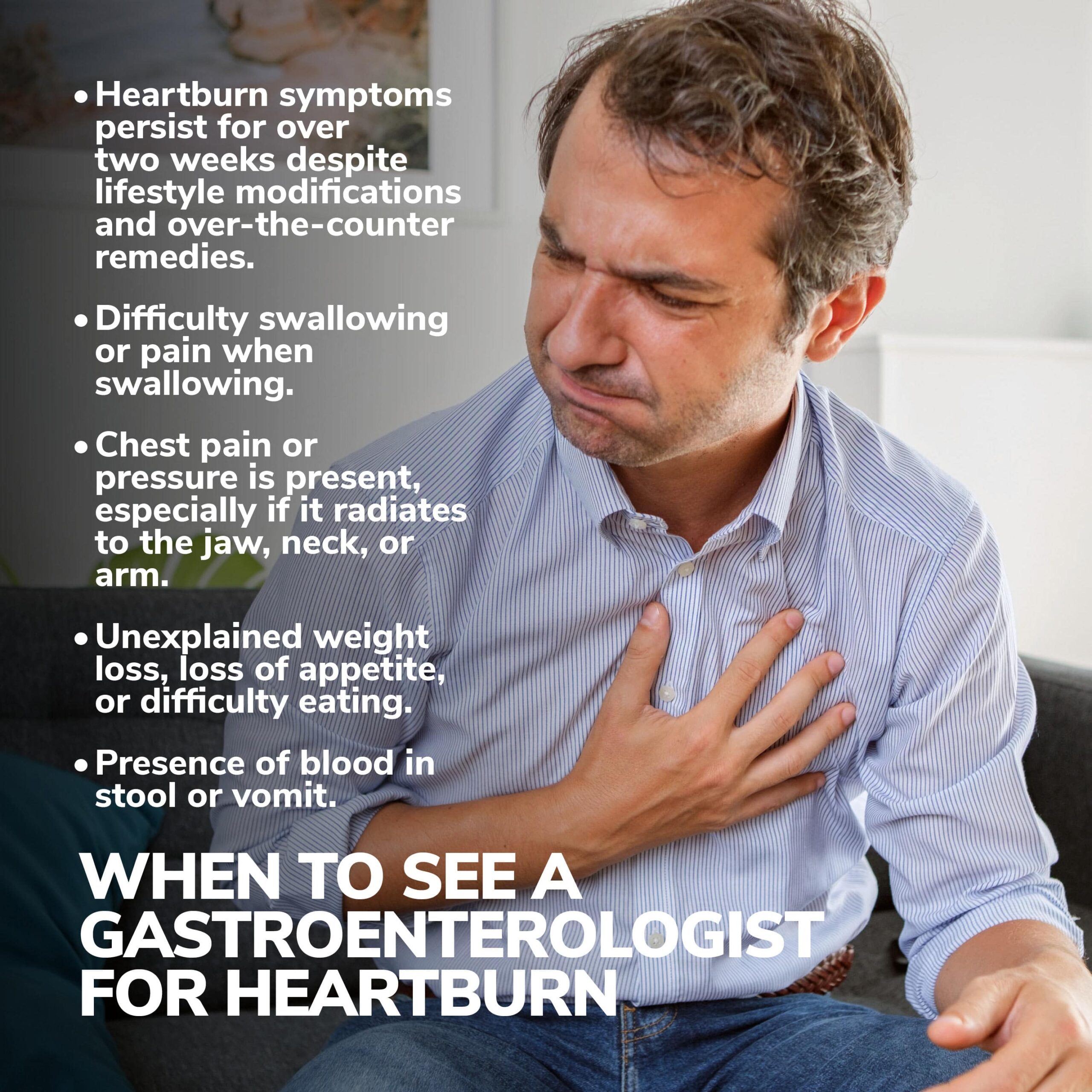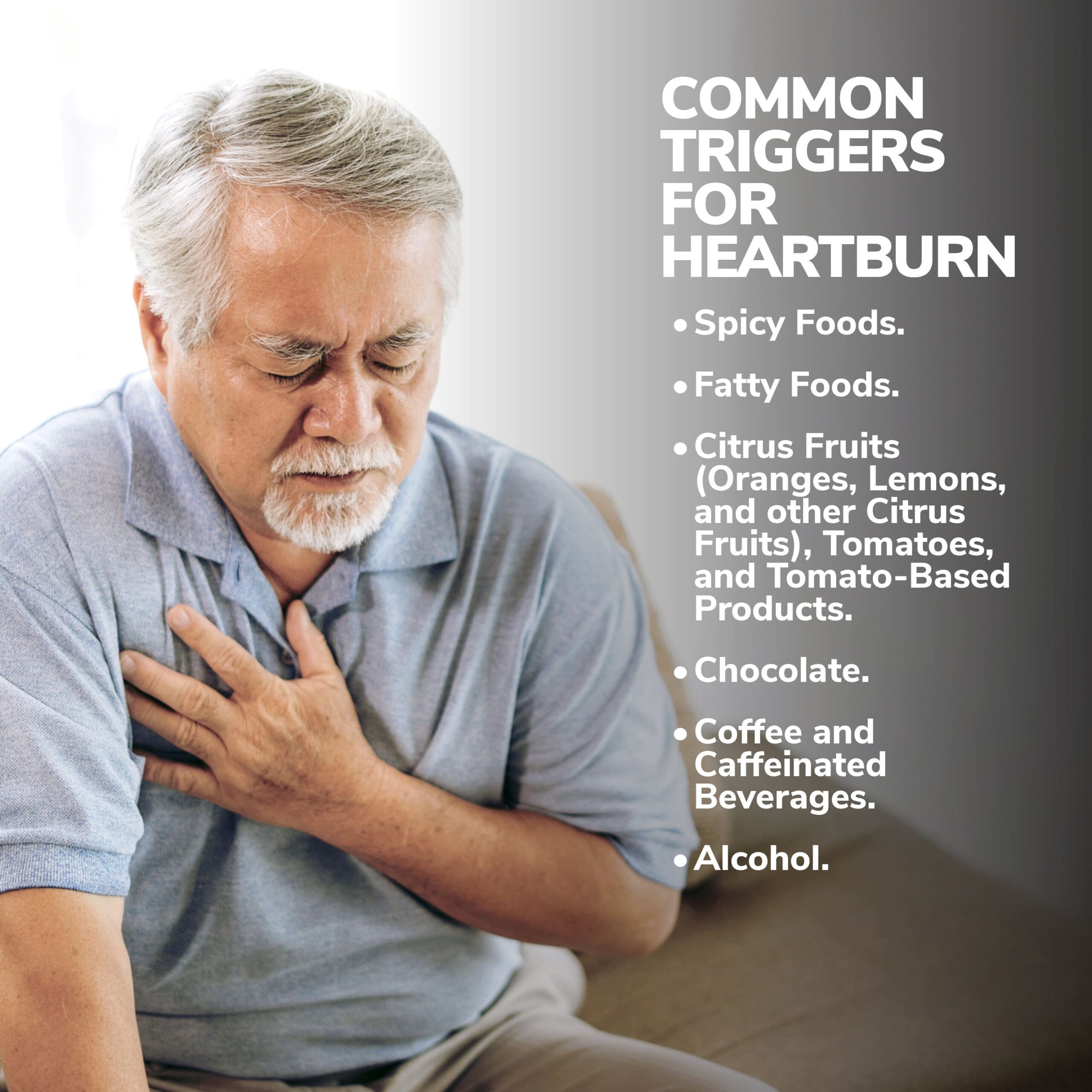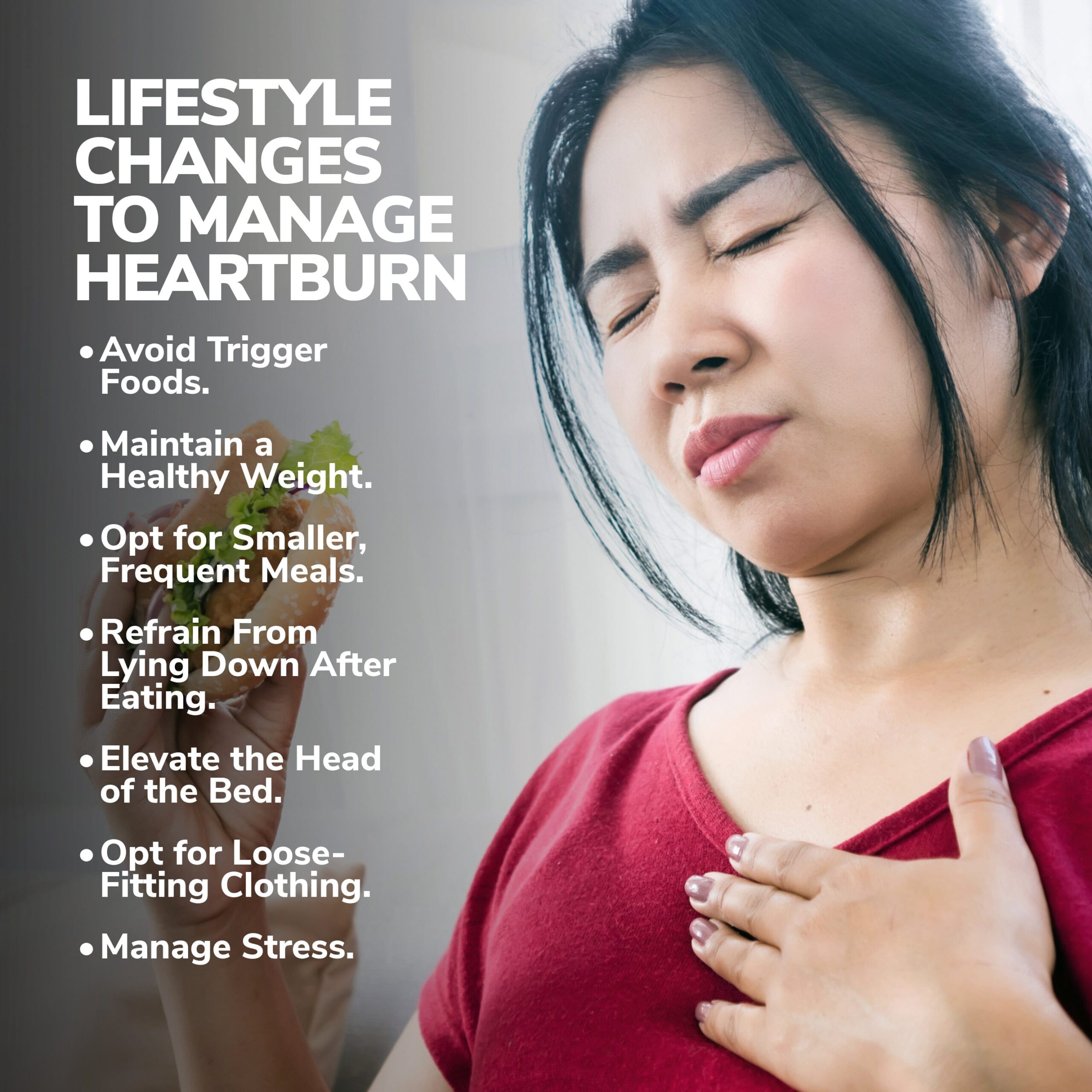
The Ultimate Guide to Heartburn: Causes, Symptoms, and Remedies
What is Heartburn?
Heartburn, characterized by a burning sensation in the chest, is a common condition affecting millions worldwide. Contrary to its name, heartburn has nothing to do with the heart itself. It occurs when stomach acid flows back into the esophagus, causing irritation and discomfort. The medical term for heartburn is gastroesophageal reflux disease (GERD), a condition that can have varying degrees of severity, from mild to severe.
Many factors can contribute to the development of heartburn. One of the leading causes is a weakened lower esophageal sphincter (LES), the muscular ring separating the esophagus from the stomach. When the LES doesn’t close properly, stomach acid can leak into the esophagus, leading to heartburn. Other contributors that elevate the likelihood of experiencing heartburn include lifestyle decisions, pregnancy, obesity, specific medications, and tobacco usage.

Causes of Heartburn
A weakened LES is one of the primary causes of heartburn. This can occur for various reasons, such as excessive pressure on the stomach caused by obesity or pregnancy. Certain foods and beverages, such as spicy or fatty foods, coffee, alcohol, and others, can trigger heartburn.
Besides these factors, lifestyle choices can also contribute to the development of heartburn. Eating large meals, lying down immediately after eating, and wearing tight clothing that puts pressure on the abdomen can all increase the likelihood of experiencing heartburn. Stress and anxiety can also worsen symptoms, as they can affect the functioning of the digestive system.
Symptoms of Heartburn
The most common symptom of heartburn is a burning sensation in the chest that often moves upwards towards the throat. A sour or bitter taste in the mouth often accompanies this sensation. Some people may also have trouble swallowing, a dry cough, hoarseness, or a sensation of food becoming lodged in the throat.
It is important to note that while occasional heartburn is common and usually harmless, frequent or severe heartburn can signify a more serious or underlying condition. If symptoms persist or worsen, seek a consultation with your gastroenterologist to exclude any complications or other digestive disorders.
Understanding the Link Between Heartburn and the Heart
Despite its name, heartburn does not affect the heart. It is a gastrointestinal issue that occurs when stomach acid irritates the lining of the esophagus. The symptoms of heartburn can sometimes be mistaken for heart-related problems, such as a heart attack.
Heartburn pain can be described as a burning sensation, like the chest pain experienced during a heart attack. Some people may experience pain in the upper abdomen, which can radiate to the jaw, neck, or arm. It is important to be aware of these similarities and seek medical attention if there is any uncertainty about the cause of the symptoms.
When to See a Gastroenterologist for Heartburn
Heartburn can usually be managed with simple lifestyle changes and over-the-counter medications. There are instances when it is necessary to consult a gastroenterologist specializing in digestive disorders.
It is advisable to see a gastroenterologist if:
- Heartburn symptoms persist for over two weeks despite lifestyle modifications and over-the-counter remedies.
- Difficulty swallowing or pain when swallowing.
- Chest pain or pressure is present, especially if it radiates to the jaw, neck, or arm.
- Unexplained weight loss, loss of appetite, or difficulty eating.
- Presence of blood in stool or vomit.
A gastroenterologist can perform diagnostic tests, such as an endoscopy or pH monitoring, to determine the cause of persistent heartburn and develop an appropriate treatment plan.

Common Triggers for Heartburn
Certain foods and beverages are known to trigger or worsen heartburn symptoms. These include:
- Spicy Foods: Spices can irritate the lining of the esophagus and increase acid production.
- Fatty Foods: High-fat meals can relax the LES and delay stomach emptying, leading to acid reflux.
- Citrus Fruits, Tomatoes, and Tomato-Based Products: Oranges, lemons, and other citrus fruits contain high levels of acid that can irritate the esophagus. The acidity can contribute to heartburn.
- Chocolate: Chocolate contains theobromine, which can relax the LES and lead to acid reflux.
- Coffee and Caffeinated Beverages: These can stimulate acid production and relax the LES.
- Alcohol: Alcoholic beverages can irritate the esophagus and increase acid production.

Lifestyle Changes to Manage Heartburn
Making certain lifestyle modifications can help manage and reduce the frequency of heartburn episodes.
Some effective strategies include:
- Maintain a Healthy Weight: Excess weight can put pressure on the abdomen and increase the risk of heartburn. Losing weight through a balanced diet and regular exercise can ease symptoms.
- Opt for Smaller, Frequent Meals: Instead of large meals, opt for smaller portions throughout the day to prevent excessive stomach acid production.
- Refrain From Lying Down After Eating: Allow at least two to three hours for digestion before lying down or going to bed.
- Elevate the Head of the Bed: Raising the head of the bed by six to eight inches can aid in preventing stomach acid reflux during sleep.
- Opt for Loose-Fitting Clothing: Avoid tight clothing that puts pressure on the abdomen and contributes to heartburn.
- Manage Stress: Stress and anxiety can disrupt the digestive system, so finding effective stress management techniques, such as exercise, meditation, or therapy, can help reduce symptoms.

Home Remedies for Heartburn
Many home remedies can provide relief from occasional heartburn.
Potential remedies include:
- Baking Soda: Mixing a teaspoon of baking soda with water and drinking it can help neutralize stomach acid and ease symptoms.
- Ginger: Consuming ginger in various forms, such as ginger tea or capsules, can help reduce inflammation and soothe the digestive system.
- Aloe Vera Juice: Drinking a small amount of aloe vera juice can help soothe the esophagus and reduce heartburn symptoms.
- Slippery Elm: Taking slippery elm in capsule form or drinking it as a tea can provide a protective coating to the esophagus and reduce irritation.
- Apple Cider Vinegar: Although it may seem counterintuitive, drinking a small amount of diluted apple cider vinegar can help balance stomach acid and relieve heartburn.
Over-the-Counter and Prescription Medications for Heartburn
For more severe or persistent cases of heartburn, over-the-counter or prescription medications may be necessary.
Over-the-counter and prescription medications include:
- Antacids: These medications can provide quick relief by neutralizing stomach acid. They are available over the counter and should be taken as needed.
- H2 Blockers: H2 blockers reduce the production of stomach acid, providing longer-lasting relief. They are available over the counter or by prescription.
- Proton Pump Inhibitors: PPIs are the most effective medications for reducing stomach acid production. They are available by prescription and can provide long-term relief for severe cases of heartburn.
Consult with your gastroenterologist at GastroMD before starting any medication to ensure proper dosing and to rule out any potential complications with other medications.
Contact Us
For personalized guidance on managing heartburn and ensuring digestive well-being, consult the experienced gastroenterologists at GastroMD. Our specialized care offers tailored solutions to reduce discomfort and address underlying issues. Take control of your well-being by making lifestyle changes, avoiding triggers, and seeking timely medical advice. With your digestive health as our top priority, we’re here to empower you on your journey to lasting relief.



